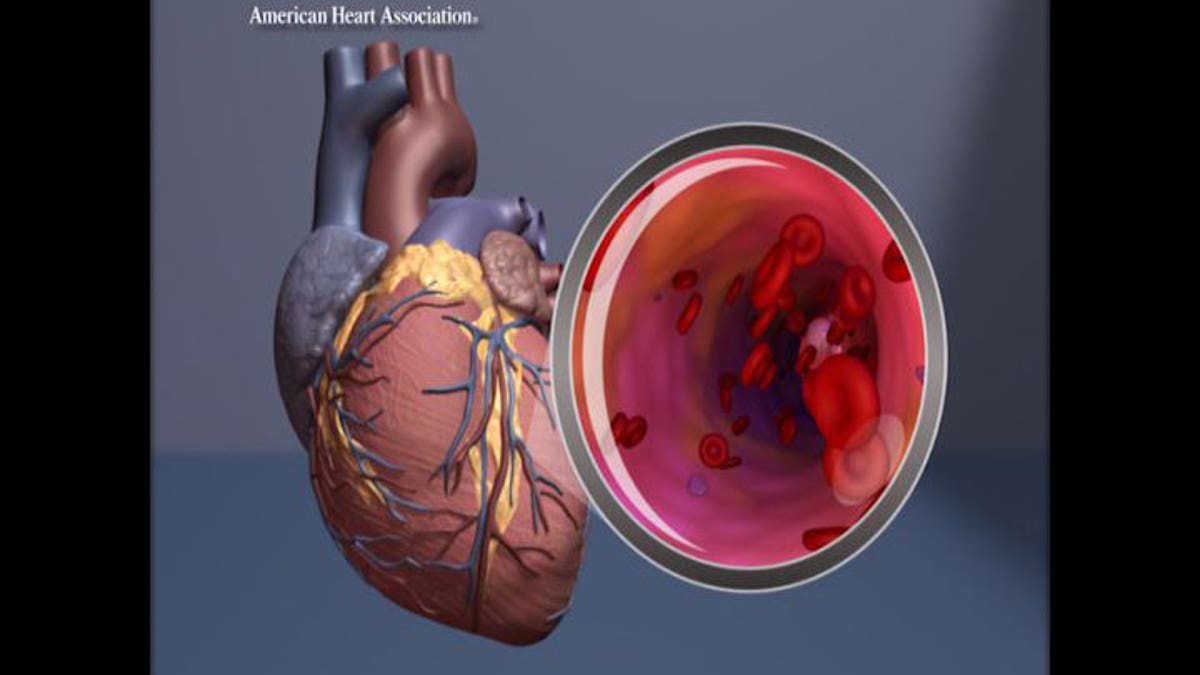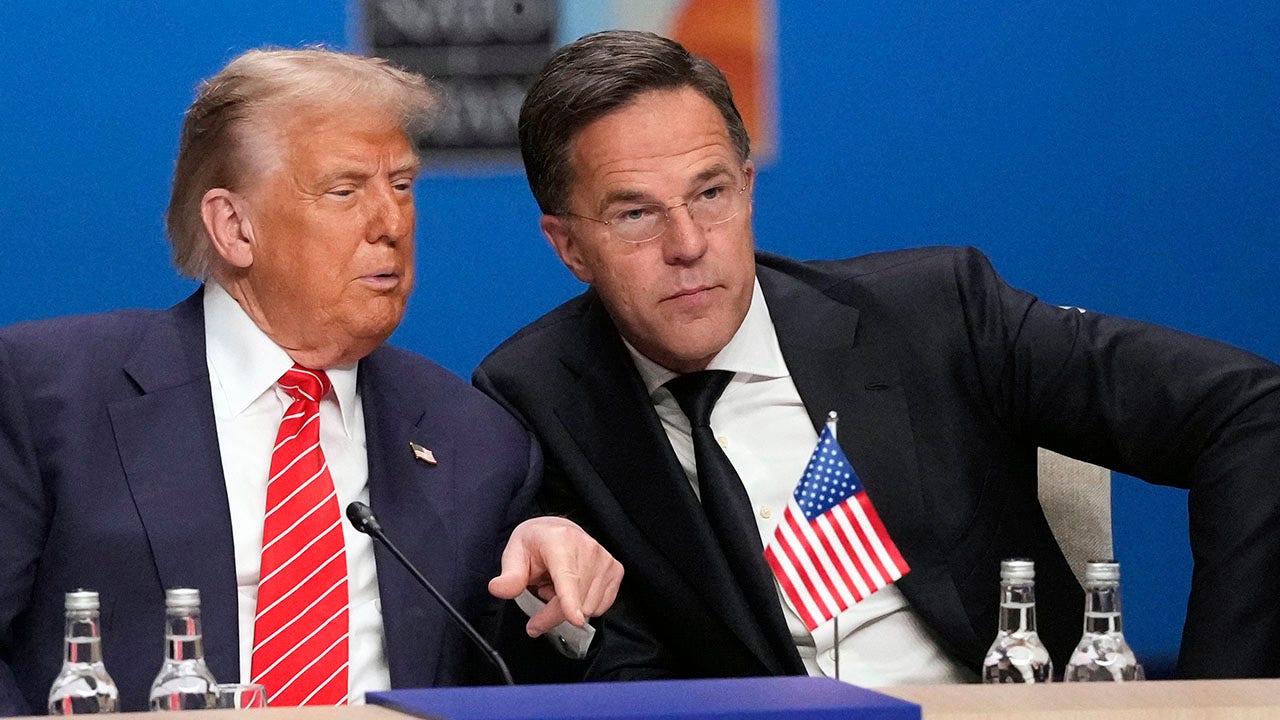Health
AIDS Relief Program Under Threat as G.O.P. Insists on Abortion Restriction

Nancy Pelosi, the Democratic former House speaker, and George W. Bush, the Republican former president, do not agree on much. But earlier this year, they joined a high-powered gathering in Washington — with the Irish rock star Bono on video from Dublin — to mark the 20th anniversary of America’s biggest and, arguably, most successful foreign aid program.
Mr. Bush created that program, the President’s Emergency Program for AIDS Relief, in 2003. In the two decades since, PEPFAR, as it is known, has saved 25 million lives and served as a powerful tool for soft diplomacy, a symbol of America’s moral leadership in the world. It has had extraordinary support from a bipartisan coalition of liberals and Christian conservatives.
But now PEPFAR is in danger of becoming a victim of abortion politics — just as the State Department is reorganizing to make the program permanent.
The program is set to expire at the end of September. But House Republicans are not moving forward with a bill to reauthorize it for another five years, because abortion opponents — led by a G.O.P. congressman who has long been a supporter of PEPFAR — are insisting on adding abortion-related restrictions.
The stalemate is the latest example of how Republicans are using their majority in the House of Representatives to impose their conservative views on social policy throughout the federal government. They have focused in particular on abortion, a year after the Supreme Court overturned Roe v. Wade and, with it, the right to legal abortion. Earlier this summer, House Republicans loaded up the annual military policy bill that has long been bipartisan with provisions to limit abortion access and transgender care.
The fight over PEPFAR, a $7 billion-a-year program that operates in more than 50 countries, is similar, because it is a broadly bipartisan program that now appears at risk of being sucked into a partisan fight over cultural and social issues.
PEPFAR continues to have wide support, including from Representative Michael McCaul of Texas, the Republican chairman of the Foreign Affairs Committee, which oversees the program and approve the reauthorization legislation. But so far, Mr. McCaul has not advanced it because of the objections of abortion foes, including his Republican colleague, Representative Christopher H. Smith of New Jersey, one of the leading anti-abortion voices in Congress who also helped draft the legislation creating PEPFAR.
Mr. Smith now says he will not agree to renew the program unless it is subject to the so-called Mexico City policy — enacted by Republican presidents but lifted by Democrats, including President Biden — that would bar the program from partnering with any organization that provides abortion services, no matter the source of the funding.
That is a non-starter for Democrats, who are demanding a “clean” five-year reauthorization — one with no added policy restrictions.
“We’ve done clean reauthorizations for 20 years,” said Representative Barbara Lee, Democratic of California and a chief sponsor of PEPFAR.
But there is a substantial stumbling block: Three influential outside groups that oppose abortion — the Family Research Council, the Heritage Foundation’s political action arm and Susan B. Anthony Pro-Life America — have sided with Mr. Smith and intend to “score” the vote when they compile their annual ratings of members of Congress. A vote for renewing PEPFAR without the anti-abortion language would be counted as a demerit, making it politically toxic for most Republicans.
The situation has alarmed champions of the program. In an email, Bono called the impasse “madness,” and called on Congress to “protect the bipartisan commitment to keeping politics out of PEPFAR.”
Mr. McCaul said he is “talking to supporters both inside and outside the government, and working with my colleagues on both sides of the aisle in the House and the Senate” to resolve the dispute. He has also been texting with Bono, who in turn has been in touch with congressional leaders on the matter.
A senior White House official, speaking on the condition of anonymity to describe the negotiations, said on Thursday that the White House was “engaging closely with Congress at senior levels” in pursuit of a straight five-year reauthorization.
The program is an important legacy for Mr. Bush and other Republicans of his era, including Bill Frist, the former Senate majority leader, and Rick Santorum, a former senator from Pennsylvania.
“I look back on the things I did as a member of Congress, and feel like I was able, as the pro-life warrior in the United States Senate, to forge a compromise to get conservatives to support this,” Mr. Santorum said in an interview. “It’s been a great thing for our country, and it’s been a great thing for humanity.”
Last week, Mr. Santorum publicly pleaded for a “five-year, clean extension” in an opinion essay in the conservative outlet Newsmax. He said he intended to use Congress’s upcoming August recess to try to forge a compromise.
But in recent months, Mr. Smith, the New Jersey Republican, and right-wing groups have begun accusing the Biden administration of injecting progressive politics into the program.
In late May, a Heritage Foundation scholar published an essay in The Hill arguing that PEPFAR had become “increasingly politicized” and needed an overhaul. Mr. Smith followed in early June with “Dear Colleague” letter asserting that Mr. Biden had “hijacked PEPFAR.”
In an interview, he pointed to new language in a PEPFAR country and regional operational plan calling for the program to partner with organizations that advocate for “institutional reforms in law and policy regarding sexual, reproductive and economic rights of women.” He argued that was code for a plan to “integrate abortion with H.I.V./AIDS work.”
The document also says PEPFAR programs should “advance human rights and decriminalization for lesbian, gay, bisexual, transgender, queer, and intersex (L.G.B.T.Q.I.+) communities.” That did not sit well with the Family Research Council, whose chief lobbyist, Travis Weber, recently called PEPFAR “a massive slush fund for abortion and L.G.B.T. advocacy.” In an interview, he said he stood by those words.
The senior White House official said that the “intentional focus on health equity is new” and that it came in response to requests from local communities for PEPFAR to “address barriers to health for children, adolescent girls and young women, and key populations.” The mention of women’s rights refers to ensuring that adolescent girls have access to schools, the official said.
The Biden administration has added a footnote to the document clarifying that PEPFAR does not fund abortions, an assertion that Mr. Smith called “meaningless.”
There is no evidence that PEPFAR or its foreign partners have used federal tax dollars to promote or perform abortions; U.S. law does not allow it. But some PEPFAR grantees, such as Population Services International, a global health nonprofit based in Washington, do provide abortion-related services with money from other sources.
“The assertion is made by critics is that organizations like P.S.I. are working with U.S. money and involved in abortion — and shouldn’t that be illegal?” said Karl Hofmann, the group’s president and chief executive. “I guess my answer is, those two facts are true, and it’s not illegal.”
Ms. Lee, the California Democrat, said she is working to “clarify this misrepresentation” being made by Mr. Smith.
But the prospects for a five-year extension seem bleak.
“We are in a very precarious place,” said Shepherd Smith, an evangelical Christian and a co-founder of Childrens AIDS Fund International, a nonprofit. He has organized other faith-based groups to issue a letter in support of reauthorization.
Christopher H. Smith, the New Jersey congressman, has proposed an alternative: He persuaded fellow Republicans to insert language into a State Department spending bill that would allow PEPFAR to keep operating for a year without a new authorization, but subject to the anti-abortion restrictions. But even if that were to pass, certain programs — including one devoted to orphans and vulnerable children — would lapse after Sept. 30.
And the symbolism of such a move would be devastating, PEPFAR’s backers say — a signal to other nations that the United States is abandoning its bipartisan commitment to end the AIDS epidemic by 2030, and that Washington is truly broken. It would also be a setback for global health; PEPFAR has created an infrastructure of clinics in poor nations that provide other services, including Covid-19 testing and vaccines.
“This is not an issue that at all involves abortion — it’s about having health care facilities in countries to deal with pandemic type of challenges,” said Senator Benjamin L. Cardin, Democrat of Maryland. He called PEPFAR’s creation “one of the great moments in American foreign policy.”
As the debate plays out on Capitol Hill, the State Department official who oversees PEPFAR, Dr. John N. Nkengasong, is about to get a big promotion. On Tuesday, Secretary of State Antony J. Blinken is expected to announce the establishment of a new Bureau of Global Health Security and Diplomacy, to be led by Dr. Nkengasong. The idea is to integrate PEPFAR into the department’s broader global health work and to transition it out of emergency status.
Since its inception, the program has invested more than $100 billion in fighting the global AIDS crisis. Independent analyses by K.F.F., formerly the Kaiser Family Foundation, have found that PEPFAR has helped improve maternal and child health and is “associated with large, significant declines in mortality” in countries where it has operated.
Backers of the program are hoping that Mr. Bush will weigh in. Earlier this year, Emily Bass, an author and activist, sent the former president a signed copy of her book, “To End a Plague: America’s Fight to Defeat AIDS in Africa,” which chronicles the PEPFAR story.
A few weeks ago, Ms. Bass said, Mr. Bush sent a letter thanking her.
“Laura and I will remain invested in this mission for the rest of our lives,” he wrote.

Health
Kelly Ripa’s 3-Day Diet Helped Her Zip Her Dress—Here’s What She Ate

Use left and right arrow keys to navigate between menu items.
Use escape to exit the menu.
Sign Up
Create a free account to access exclusive content, play games, solve puzzles, test your pop-culture knowledge and receive special offers.
Already have an account? Login
Health
Heart attack deaths have plummeted in US, but new cardiovascular threats emerge

NEWYou can now listen to Fox News articles!
Heart attack deaths have plummeted in recent years — but other types of cardiovascular disease still pose a major threat.
A new study by the American Heart Association (AHA) found that overall heart disease-related death rates have declined by 66%, and heart attack deaths have dropped by almost 90%.
While heart attacks are no longer the most fatal form of heart disease, there have been increases in other types — heart failure, arrhythmias (irregular heartbeats) and hypertensive heart disease (long-term high blood pressure).
CANNABIS USE RAISES RISK OF HEART ATTACK AND STROKE MORE THAN COCAINE, OTHER DRUGS, MAJOR REVIEW SUGGESTS
The findings were published in the peer-reviewed Journal of the American Heart Association.
In the study, researchers analyzed more than 50 years of data from the U.S. Centers for Disease Control and Prevention (CDC), focusing on heart disease deaths among adults aged 25 and older.
Heart attack deaths have plummeted in recent years — but other types of cardiovascular disease still pose a major threat. (iStock)
In 1970, heart attacks — also known as ischemic heart disease — represented more than half (54%) of all heart disease deaths, the study found.
As of 2022, only 29% of heart disease deaths were caused by heart attacks.
Other types of heart disease deaths — such as heart failure, hypertensive heart disease and arrhythmia — have risen during that timeframe, however.
EXPERIMENTAL CHOLESTEROL PILL CUTS HEART ATTACK RISK WITH ‘CONVENIENT’ ONCE-DAILY DOSE
In 2022, these other types were responsible for 47% of heart disease deaths, up from just 9% in 1970, the study found.
“This distribution shift in the types of heart disease people were dying from the most was very interesting to us,” said the study’s first author, Sara King, M.D., a second-year internal medicine resident in the department of medicine at Stanford School of Medicine in Stanford, California, in the release.

While heart attack deaths have declined, other types of heart disease deaths — such as heart failure, hypertensive heart disease and arrhythmia — have risen in the last 50 years. (American Heart Association)
“This evolution over the past 50 years reflects incredible successes in the way heart attacks and other types of ischemic heart disease are managed,” she went on.
“However, the substantial increase in deaths from other types of heart conditions, including heart failure and arrhythmias, poses emerging challenges the medical community must address.”
“The increase in other types of heart disease leading to death has offset the wins from deaths from heart attacks declining.”
Arrhythmias, or irregular heartbeats, happen when electrical impulses to the heart are too fast, slow or erratic, according to the AHA. One common example of an arrhythmia is atrial fibrillation (AFib), which begins in the upper chambers of the heart.
Heart failure is defined as a “chronic condition where the heart is unable to pump enough blood to meet the body’s needs for blood and oxygen.”

One common example of an arrhythmia is atrial fibrillation (AFib), which begins in the upper chambers of the heart. (American Heart Association)
Hypertensive heart disease describes damage to the heart caused by long-term, unaddressed high blood pressure, the AHA stated.
Sadiya S. Khan, MD, a cardiologist and associate professor at Northwestern University in Chicago, was not involved in the study but commented on the “important analysis.”
“Fortunately, this study suggests important progress in a preventable cause of death — heart attacks,” she told Fox News Digital.
STANFORD RESEARCHERS DEVELOP ‘GAME-CHANGING’ STROKE TREATMENT THAT DOUBLES EFFECTIVENESS
“Unfortunately, it suggests that there is a smoldering crisis of other types of heart disease deaths that may be in part related to heart attacks, but speak to the growing burden of obesity that results in more heart failure and arrhythmia-related deaths.”
“The increase in other types of heart disease leading to death has offset the wins from deaths from heart attacks declining.”
Why the decrease in heart attacks?
The researchers presented several possible reasons for the decrease in heart attack deaths, primarily advancements in treatment for sudden and acute cardiac events.
“From the establishment and increased use of bystander CPR and automated external defibrillators (AEDs) to treat cardiac arrest outside the hospital setting, to the creation of systems of care that promote early recognition of and quick procedural and medical intervention to treat heart attacks, there have been great strides made in helping people survive initial acute cardiac events that were once considered a death sentence,” King said in the release.

“The next frontier in heart health must focus on preventing heart attacks, and also on helping people age with healthier hearts and avoiding chronic heart conditions later in life.” (iStock)
The researchers also touted several other medical advancements, including coronary artery bypass grafting, cardiac imaging and many new heart disease medications.
Healthy lifestyle modifications, such as quitting smoking, exercising regularly and managing cholesterol and blood pressure, have also contributed to the reduced heart attack deaths, the AHA report stated.
Khan added, “It is important to note that this doesn’t mean the heart attack may still not have been the driver, if someone with a heart attack developed heart failure and that is now called a heart failure death.”
Risk factors remain
Despite the improvements, the researchers cautioned that several other heart disease risk factors — including obesity, type 2 diabetes, hypertension and physical inactivity — are still fueling cases.
Obesity in particular has risen from 15% to 40% during the study timeframe, and type 2 diabetes affects nearly half of U.S. adults, according to the report.
Increased life expectancy is another factor — as people are living longer, a larger aging population is more likely to experience various types of heart disease.
“We’ve won major battles against heart attacks; however, the war against heart disease isn’t over,” King said. “We now need to tackle heart failure and other chronic conditions that affect people as they age.”
“The next frontier in heart health must focus on preventing heart attacks, and also on helping people age with healthier hearts and avoiding chronic heart conditions later in life.”

The AHA calculates heart health based on an individual’s score for what it calls “Life’s Essential 8.” Those who score high in those eight areas are, on average, six years younger biologically than their actual age. (American Heart Association)
The AHA calculates heart health based on an individual’s score for what it calls “Life’s Essential 8.”
Those who score high in those eight areas are, on average, six years younger biologically than their actual age.
CLICK HERE TO SIGN UP FOR OUR HEALTH NEWSLETTER
The eight lifestyle behaviors for optimal heart health are listed below.
- Eat better
- Be more active
- Quit tobacco
- Get healthy sleep
- Manage weight
- Control cholesterol
- Manage blood sugar
- Manage blood pressure
Potential limitations
The researchers pointed out several limitations of their study, including that they did not analyze data by age, sex, race, ethnicity, region or urbanization.
There could also be potential inconsistencies and “miscoding” of data over the years, they noted.
“We’ve won major battles against heart attacks; however, the war against heart disease isn’t over.”
It’s also possible that the “true burden” of heart attacks is “underestimated” in the findings, according to the researchers.
“Certain conditions including heart failure, cardiomyopathy and arrhythmias — and, in particular, ventricular arrhythmias and cardiac arrest — may be overly simplistic,” they wrote. “Many of these cases likely have underlying causes that cannot be precisely differentiated using current or past ICD (International Classification of Diseases) codes.”
For more Health articles, visit www.foxnews.com/health
Khan pointed out that despite the decrease in direct heart attack deaths, heart disease overall is still the leading cause of mortality in the U.S., accounting for more than 900,000 deaths in 2022.
Health
Video: R.F.K. Jr. Says U.S. Will Stop Funding Global Vaccine Agency

new video loaded: R.F.K. Jr. Says U.S. Will Stop Funding Global Vaccine Agency
transcript
transcript
R.F.K. Jr. Says U.S. Will Stop Funding Global Vaccine Agency
Robert F. Kennedy Jr., the health and human services secretary, said the United States would not deliver on a $1.2 billion pledge made by the Biden administration until the organization changed its processes.
-
There’s much that I admire about Gavi, especially its commitment to making medicine affordable to all the world’s people. Gavi has done that part of its job very well. Unfortunately, in its zeal to promote universal vaccination, it has neglected the key issue of vaccine safety. When the science was inconvenient, Gavi ignored the science. I call on Gavi today to re-earn the public trust and to justify the $8 billion that America has provided in funding since 2001. And I’ll tell you how to start taking vaccine safety seriously. Consider the best science available, even when the science contradicts established paradigms. Until that happens, the United States won’t contribute more to Gavi. Define success, not just in terms of the number of vaccines delivered, but on their rigorously measured overall impacts. Business as usual is over. Unaccountable and opaque policymaking is over.
Recent episodes in Health
-

 Arizona1 week ago
Arizona1 week agoSuspect in Arizona Rangers' death killed by Missouri troopers
-

 Business6 days ago
Business6 days agoDriverless disruption: Tech titans gird for robotaxi wars with new factory and territories
-

 News1 week ago
News1 week agoDog shot during Minnesota lawmaker's murder put down days after attack
-

 Business1 week ago
Business1 week agoProtesters are chasing federal agents out of L.A. County hotels: ‘A small victory’
-

 Politics1 week ago
Politics1 week agoCuomo team denies AOC’s claim he’s using NYC mayor run as a springboard to the White House
-

 Technology1 week ago
Technology1 week agoSenate passes GENIUS stablecoin bill in a win for the crypto industry
-

 Technology1 week ago
Technology1 week agoOpenAI awarded $200 million US defense contract
-

 News1 week ago
News1 week agoVideo: Inside Trump’s Shifting Stance on Iran














